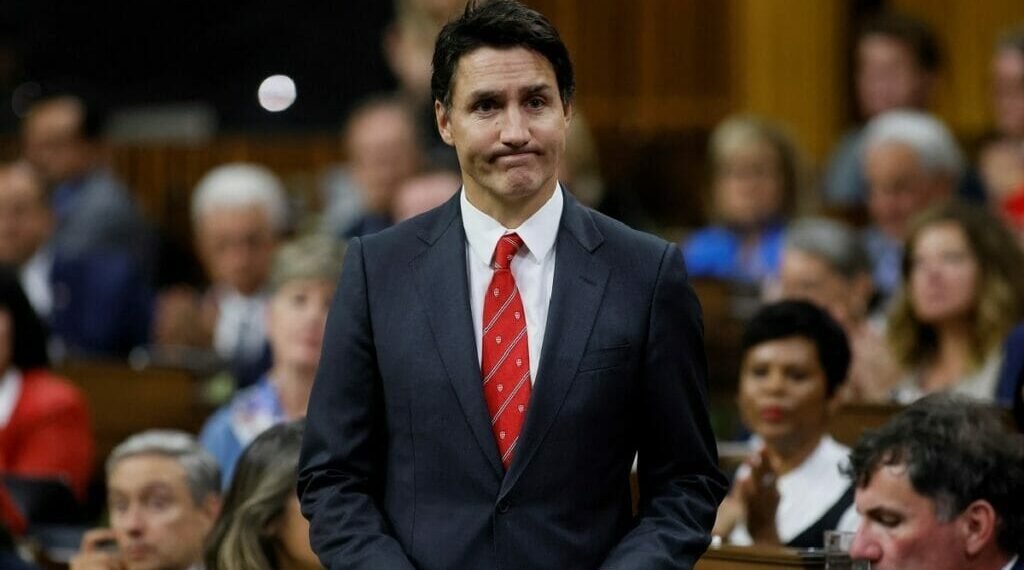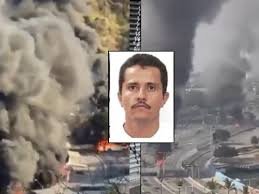New Delhi
By Power Corridors bureau
In a startling revelation, two senior officials from Canadian Prime Minister Justin Trudeau’s government have admitted to leaking intelligence concerning India to The Washington Post, according to a report from The Globe and Mail. This leak, which reportedly occurred prior to the Canadian police’s public accusation linking the Indian government to violent acts in Canada, underscores a tense new chapter in Indo-Canadian relations.

Trudeau’s National Security and Intelligence Adviser, Nathalie Drouin, testified before a parliamentary panel, disclosing that a high-ranking official in the Modi administration was allegedly involved in plots targeting Sikh separatists on Canadian soil. Drouin claimed she did not require Trudeau’s authorization to share this information, emphasizing that no “classified intelligence” was handed to The Washington Post ahead of India’s decision to recall six of its diplomats on Thanksgiving Day.
Also Read: Naim Qassem, New Chief of Hezbollah
Drouin explained that the leak was part of a strategic communication plan developed by her and Deputy Foreign Minister David Morrison to ensure Canada’s narrative was represented in the American media amid the escalating diplomatic standoff. This approach, she noted, was guided by Trudeau’s office and was designed to highlight Canada’s cooperation with India while underscoring allegations of unlawful actions by Indian government agents against Canadian citizens.
The diplomatic clash intensified when India expelled six Canadian diplomats on October 14, following Ottawa’s identification of India’s High Commissioner and several other diplomats as “persons of interest” in the investigation of the murder of Hardeep Singh Nijjar, a known Khalistani separatist.
The Globe and Mail reports that in an October 13 article, The Washington Post revealed that India’s National Security Adviser, Ajit Doval, met secretly with his Canadian counterpart in Singapore, where Canadian officials allegedly presented evidence linking Indian networks, including the Bishnoi gang, to violent plots targeting Sikh separatists in Canada.
The meeting, held on September 12 and attended by Drouin, Morrison, and Deputy RCMP Commissioner Mark Flynn, highlighted what Drouin described as “alarming” evidence of serious crimes, including assassination plots and extortion, that Canada felt warranted immediate action. Yet, the decision to release this information to a foreign newspaper rather than the Canadian public has stirred criticism within Canada’s political landscape.
According to reports, conservative public safety critic Raquel Dancho pressed Drouin and Morrison on why the Trudeau government, its cabinet, and the RCMP chose to disclose details to The Washington Post before informing Canadians. RCMP Commissioner Mike Duheme defended the decision, reiterating that the information was non-classified and withheld from the public to avoid disrupting ongoing investigations.
As diplomatic tensions continue, the Indian government has dismissed Canada’s accusations as unsubstantiated, pointing to long-standing concerns over Canada’s stance on pro-Khalistan activities. India has repeatedly urged Canada to address the issue, linking Nijjar to violent acts, including a 2007 cinema bombing in Punjab and the 2009 killing of Sikh politician Rulda Singh.
With each new development, the Indo-Canadian rift deepens, as both sides remain locked in an ongoing struggle for accountability and clarity amid claims of international intrigue and clandestine plots.












